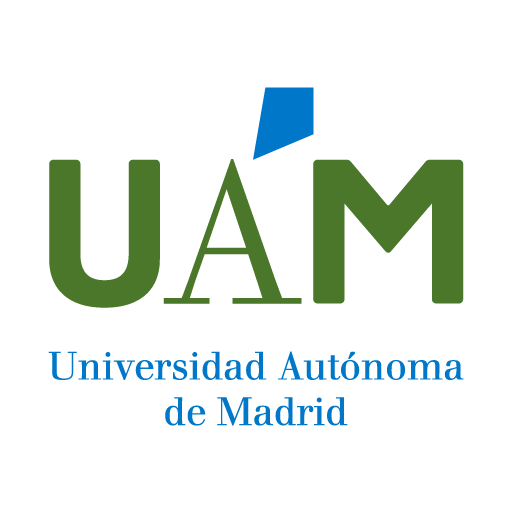
Indexado en
Licencia y uso
Grant support
Projects PIE15/00068, PI17/01865 and PI20/01458 (Instituto de Salud Carlos III) awarded to RC; Projects FIS PI19/01491 and CIBER Cardiovascular (Fondo de Investigacion Sanitaria del Instituto de Salud Carlos III with co-funding from the Fondo Europeo de Desarrollo Regional FEDER) awarded to AA; CNIO Bioinformatics Unit is supported by the Instituto de Salud Carlos III (ISCIII); Project RETOS RTI2018-097596-B-I00 (AEI/10.13039/501100011033 MCI/FEDER, UE); Projects PI17/00801 and PI21/01111 grants from Instituto de Salud Carlos III and JR17/00007 awarded to NRL, and Project Molecular analysis of the Exhaled Breath Condensate in the management of solitary pulmonary nodule (ideas semilla AECC 2019), from Asociacion Espanola Contra el Cancer (AECC) awarded to JA.
Análisis de autorías institucional
Romero-Laorden, NAutor o CoautorMondejar, RAutor o CoautorAspa, JAutor o CoautorAlfranca, AAutor o CoautorColomer, RAutor o CoautorExcess weight and anti-PD-1 immune checkpoint inhibitor’s outcomes in non-small cell lung cancer
Publicado en:Clinical & Translational Oncology. 24 (11): 2241-2249 - 2022-11-01 24(11), DOI: 10.1007/s12094-022-02887-8
Autores: Rogado, Jacobo; Pozo, Fernando; Troule, Kevin; Sanchez-Torres, Jose Miguel; Romero-Laorden, Nuria; Mondejar, Rebeca; Donnay, Olga; Ballesteros, Anabel; Pacheco-Barcia, Vilma; Aspa, Javier; Al-Shahrour, Fatima; Alfranca, Arantzazu; Colomer, Ramon
Afiliaciones
Resumen
Purpose Immune checkpoint inhibitors are one of the most effective treatments available in advanced non-small cell lung cancer. However, at present, there are no clinical or analytical biomarkers that define which patients benefit with certainty from these treatments. In our study, we evaluated whether excess weight could be a good predictive biomarker of benefit from these drugs. Methods We studied a population of 79 patients, divided into a study group with 39 patients diagnosed with non-small cell lung cancer treated with immunotherapy and 40 patients in a control group, diagnosed with different advanced cancers, treated with non-immunotherapy treatment. We analyzed according to the presence of excess weight or not, the treatment's outcome in the study group and in the control group (objective response, and progression-free and overall survival). Results In our study, we detected a better response rate to immunotherapy in patients with excess weight (62.50 vs 26.08%, OR 4.72, p = 0.02), and a better median progression-free survival (14.19 vs 5.03 months, HR 0.50, p = 0.058) and median overall survival (33.84 months vs 20.76 months, HR 0.43, p = 0.01) in the study group. These findings were specific to the immunotherapy group since in the control group, with patients who did not receive immune checkpoint inhibitors, these findings were not found. Conclusion Our study suggests that patients with excess weight who receive anti-PD-1 immune checkpoint inhibitors diagnosed with non-small cell lung cancer have a better outcome. This effect is specific to patients receiving immunotherapy.
Palabras clave
Indicios de calidad
Impacto bibliométrico. Análisis de la aportación y canal de difusión
El trabajo ha sido publicado en la revista Clinical & Translational Oncology debido a la progresión y el buen impacto que ha alcanzado en los últimos años, según la agencia Scopus (SJR), se ha convertido en una referencia en su campo. En el año de publicación del trabajo, 2022, se encontraba en la posición , consiguiendo con ello situarse como revista Q2 (Segundo Cuartil), en la categoría Medicine (Miscellaneous). Destacable, igualmente, el hecho de que la Revista está posicionada en el Cuartil Q3 para la agencia WoS (JCR) en la categoría Oncology.
2025-06-22:
- Scopus: 1
- OpenCitations: 4
Impacto y visibilidad social
Análisis de liderazgo de los autores institucionales
Existe un liderazgo significativo ya que algunos de los autores pertenecientes a la institución aparecen como primer o último firmante, se puede apreciar en el detalle: Último Autor (COLOMER BOSCH, RAMON).

